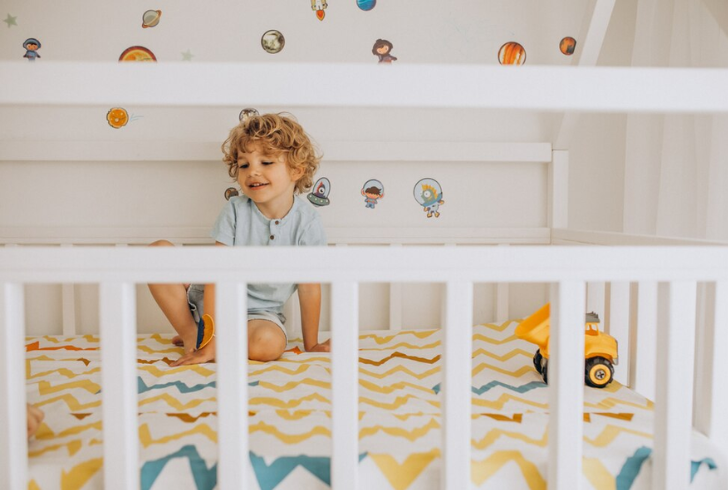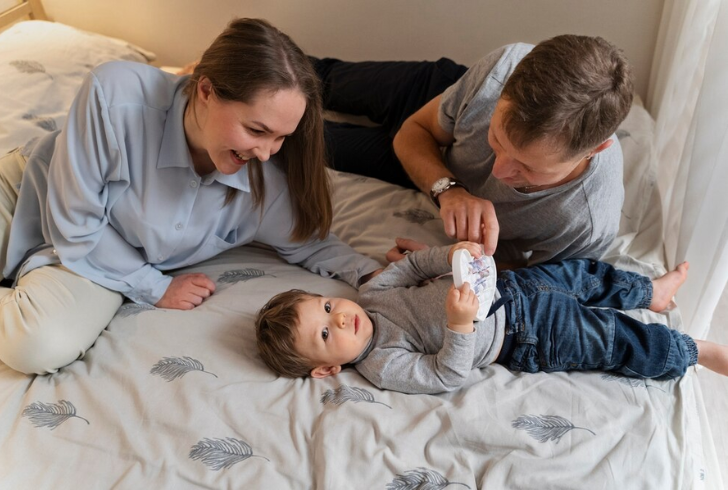The concept of children having their own bedrooms has become deeply ingrained in modern American culture, often seen as a symbol of independence and personal space. But do children really need their own bedroom, or is this a luxury that doesn’t necessarily contribute to their well-being?
As housing costs continue to rise, and families face tough decisions about space, it’s worth examining whether this common practice is truly essential for a child’s development.
The Modern Ideal of Individual Bedrooms
In contemporary American households, having a separate bedroom for each child has evolved into a widely accepted standard. This shift can be traced back to the latter half of the 20th century when housing sizes increased and family sizes decreased. According to census data, the number of bedrooms per child rose from 0.7 in 1960 to 1.1 in 2000, a trend that has remained stable since then.

A 2022 survey revealed that more than half of U.S. families with children now have sufficient bedrooms for each child, though the exact number with solo rooms is uncertain. Even among those whose children share rooms, a significant majority express a desire for separate spaces.
Historical and Cultural Perspectives
Historically, private bedrooms were uncommon. Prior to the 19th century, families, including extended members and servants, often slept in shared quarters. The concept of individual rooms for children only gained traction with the advent of modern parenting philosophies.
Early 20th-century parenting guides promoted separate bedrooms as a means to instill independence and character in children. However, while this practice has persisted, there is limited evidence supporting its impact on child development.
The Benefits of Separate Bedrooms
There are several advantages associated with providing children their own space:
1. Personalization and Control
A separate room allows children to personalize their space, choose their décor, and enjoy a degree of autonomy. This can be empowering and foster a sense of ownership.
2. Reduced Conflict
Siblings with separate rooms may experience fewer conflicts over personal space and possessions. The separation can also lead to better sleep quality, as noted by the Sleep Foundation.
3. Privacy and Reflection
Having a personal space provides opportunities for solitude, which can be beneficial for activities such as reading, journaling, or simply unwinding.
The Limitations and Considerations
Despite the benefits, there are limitations to consider:
1. Limited Autonomy – While children may have control over their room’s layout, their freedom is still bounded by parental rules and restrictions. True independence remains constrained.
2. Social Interaction – Excessive time spent alone in a bedroom can reduce opportunities for family bonding and social interaction. This isolation may impact social development and emotional well-being.
3. Cultural Norms – Globally, shared bedrooms are more common and culturally accepted. In many cultures, siblings sharing a room is the norm and is believed to promote cooperation and closer relationships.
Balancing Space and Interaction

The decision to provide children with individual bedrooms should be balanced with considerations of family dynamics and cultural practices. While separate bedrooms offer distinct advantages, shared spaces can foster essential life skills like negotiation and cooperation. For some families, particularly those with limited space, the benefits of shared rooms might outweigh the need for additional privacy.
So, Do Children Really Need Their Own Bedroom?
The question of whether children really need their own bedroom doesn’t have a one-size-fits-all answer. The choice depends on individual family circumstances, cultural expectations, and personal values. While separate rooms offer various benefits, including personal space and reduced sibling conflicts, they are not universally necessary for every child’s development. The key is to find a balance that supports both individual needs and family dynamics, ensuring that children thrive in an environment that suits their unique situation.
In evaluating the need for separate bedrooms, it’s crucial to consider both the advantages of personal space and the benefits of shared experiences. By understanding the broader implications and cultural contexts, parents can make informed decisions that best support their children’s growth and well-being.




